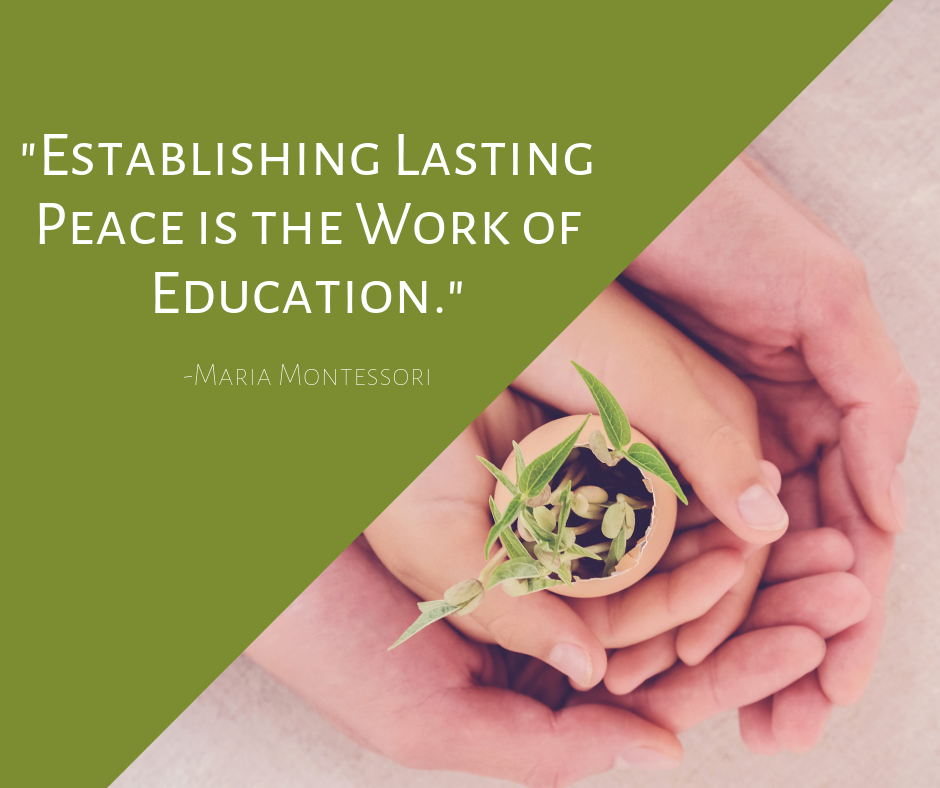The title of this article comes from a quote by Maria Montessori, a true visionary who saw her work with children as directly impacting the future of the world at large. And it’s true; the children of our world will inevitably grow up to be adults responsible for the stability of our society, and how we choose to educate them directly influences how they will one day govern their responsibilities.
Despite how innate our conflict resolution skills may feel to us as adults, these are skills that are cultivated from a very early age as we learn how to cope with one another, how to resolve disagreements, and how to compromise. As we mature in our ability to resolve conflict, we also learn how to be empathetic, compassionate, and tolerant of one another. But these skills must be practiced before we are able to intuitively navigate social conflict.
As an adult in a Montessori environment, you are constantly modeling how to handle stress and conflict with others to your students. Children are especially attuned to what we exhibit in natural, organic circumstances, as opposed to how we behave during a prepared lesson or interaction. This is often the first cue that children receive in how to handle their own instances of conflict.
Maria Montessori knew that young children would need physical, concrete tools, just like the materials they use for learning math and language skills, for conflict resolution skills as well. So the same care and preparation we put into our classroom environment, we extend to our focus on peace education, designating an area of the classroom that inspires ideas of peace and contains concrete tools such as a peace rose or peace stick. This object can be held in the child’s hands in order to facilitate turn taking in speaking to one another about a disagreement.
The Montessori classroom is designed to be an independently functioning community. It is not by accident that its structure mimics on a small scale the operations of a larger, adult community. This is to allow children the opportunity to practice scenarios they will inevitably face as adults, in a supportive setting. Montessori children learn very quickly the actions they take impact others and there is a certain grace and courtesy that must be maintained to keep a harmonious balance within the community.
Having well developed “rights” of the classroom that are clear and consistent is another important aspect of peace education. Montessori children are often invited to participate in the creation of these rights, helping them take ownership and responsibility for making sure they are maintained. Some examples might include:
Everyone has a right to his or her own space.
Everyone has a right to work undisturbed.
Everyone has a right to work with beautiful materials.
Where there are two or more people, eventual conflict is inevitable. We must give our children the space and the tools to navigate conflict clearly, respectfully, and peacefully. The more they experience success with this approach, the more they will grow in their ability to utilize peaceful solutions to resolve disagreement, and this understanding of peace will extend far beyond the classroom, on into their roles as adult leaders in the community.
Think of peace as a seed you are planting each day, for the future of the world depends on it.







